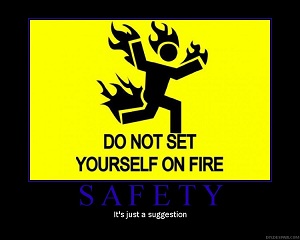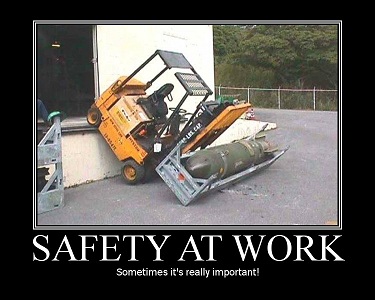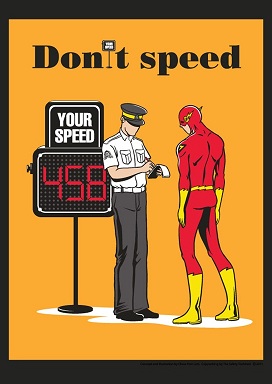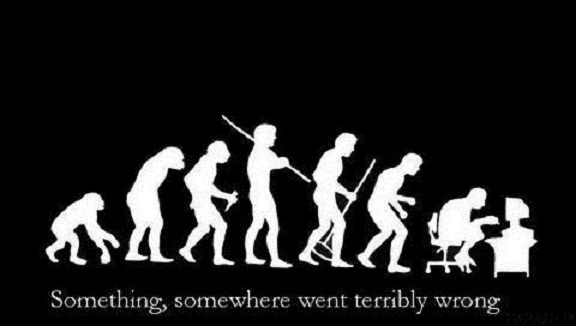
Today, we will be talking about the culture of safety in Magic.

Today, I want to talk about one particular area to help improve patient safety. The idea is to reduce repercussions from pointing out/admitting to an error. The fact is errors occur because medicine has human beings. Humans make errors. Don't get me wrong. Patients should have full faith in the medical industry that errors will never occur. The problem is they do happen. The reason for creating a safe environment that protects people from errors is to keep them from hiding them. It is far better to address the medical error than to let it go unnoticed. It is a strange concept, but it is an effective approach that does protect patients.

This article was spawned after reading Sheldon Menery's article The Rules Change When The Lights Go On: PT AVR Report at Starcitygames. The part that got my attention was the following:
If a player commits an offense, realizes it, and calls a judge over immediately and before he or she could potentially benefit from the offense, the Head Judge has the option to downgrade the penalty without it being considered a deviation, though he or she should still follow any procedure recommended to fix the error. For example, a player offers his deck to his opponent and while cutting his opponent's deck discovers that a card that belongs in his deck is in a previously exiled game pile. If he calls the judge over immediately, the Head Judge may choose to issue a Warning rather than a Game Loss.

Besides the above quote, there is no difference between admitting and having an opponent point out a mistake. We have a rule with a punishment. This equal treatment I feel is a problem for the game. It creates a hostile environment for players to admitting their own mistakes. There is no incentive besides being a morally decent human being. However, the world does not run on principles. If it did, we wouldn't have war and a lot of other bad stuff. People are human and will shy away from a punishment/repercussions. Truth be told, there is a lot more incentive in Magic to keep mum. At the higher levels of competition, there is lots of money, pro points, pride and other things on the line. Admitting a mistake threatens all of those facts. Admitting a mistake can result in game losses. See the problem?
Brushing all that aside a second, let's focus on unintentional cheating. At an FNM where a lot of new players exist: those players may not know they are making errors, but may be questioning certain game states. I've questioned myself a time or two. If we create a hostile environment, those players become reluctant to seeking out the correct answers. What happens when they do? They get slapped with a punishment. I know that I am being overdramatic. I realize we have lesser punishments at those levels. It is great. However, there is no difference between seeking out that information versus an opponent calling a player out on their mistake.
What do I suggest? I don't know exactly. I don't have the expertise, but I would like to see some leniency for pointing out ones own errors. I'm sure there are complications for this suggestion and other bad stuff. The important take-away is to move forward in creating a safe environment for players especially at the lower levels. I want and everybody should want that FNM should be a safe place where new players can learn from those mistakes. This is what happens in industry with a healthy environment. Mistakes/errors are treated as a learning opportunity. Mistakes are not meant to point blame or give out five lashes.

Let's focus on you, the reader. Think about the reasons you wouldn't want to bring up an error. Calling a judge causes complication. People avoid complicated tasks. There will be stopping the game state that is a pain, the disagreement among the players, emotions, resetting the game, the penalty, fellow friends pointing out the mistake to wound your pride, and etc. It frankly is a pain in the rear. All of it will be negative. Well, unless you are in the right and benefit from the call. There is very little upside. I guess there shouldn't be because there are rules for a reason. My point though is players have little incentive to call a judge.
A point of contention is many probably wondering if players will actually out themselves. If the environment is healthy, my answer is yes. People do it in medicine in a place where errors have tragic consequences. You know what? People still volunteer an egregious error. When they don't, it is because of other factors like a hostile environment. I'll keep beating the dead horse here. We need a healthy environment at the tables.
How do we do make a healthy environment? I will be honest that I am not a judge. I barely know the infraction guide. I think it would be ludicrous to even make some suggestions. There are people in the judge community who can make much better decisions about this idea. I do think it is a perspective that I think should at least be considered. I realize it is applied to some degree by having less harsh penalties at the lower levels of competitive play, but I do think more could be done.
What do you guys and gals think? Keep in mind; this is just a proposal of a concept. The balance here is do we want penalties to equate the crime or do we prefer an open environment with less harsh penalties to promote morality?

Comments